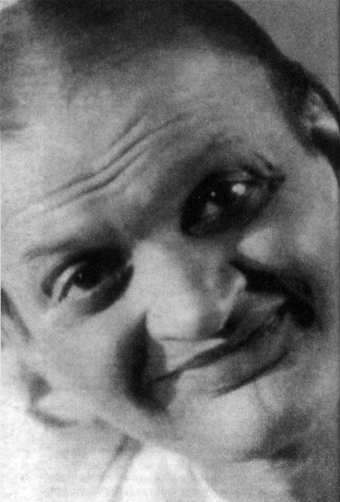
He was nicknamed in film industry as ‘Bhudo Advani’ for his toothless smile. He acted in more than a 100 movies and mostly did comic roles.
When he passed away on July 25, 1985, nobody from the film industry attended his funeral. Surprisingly, the news of his death first appeared in Pakistan in the Karachi newspapers and only later in the Times of India.
Sindh Courier Monitoring Desk
Bhudo Advani, the prolific character actor of the early days of Indian cinema, was born in Hyderabad in the province of Sindh. Born on 17 August 1905 with family name Daulatram Advani, he possessed keen interest in theatre and other performing arts right since childhood. Cinema with its theatrical origins and promise of glamour beckoned him early in life. Moving to Bombay, he met director Mohan Bhavnani, a fellow Sindhi, and struck up a friendship with him.
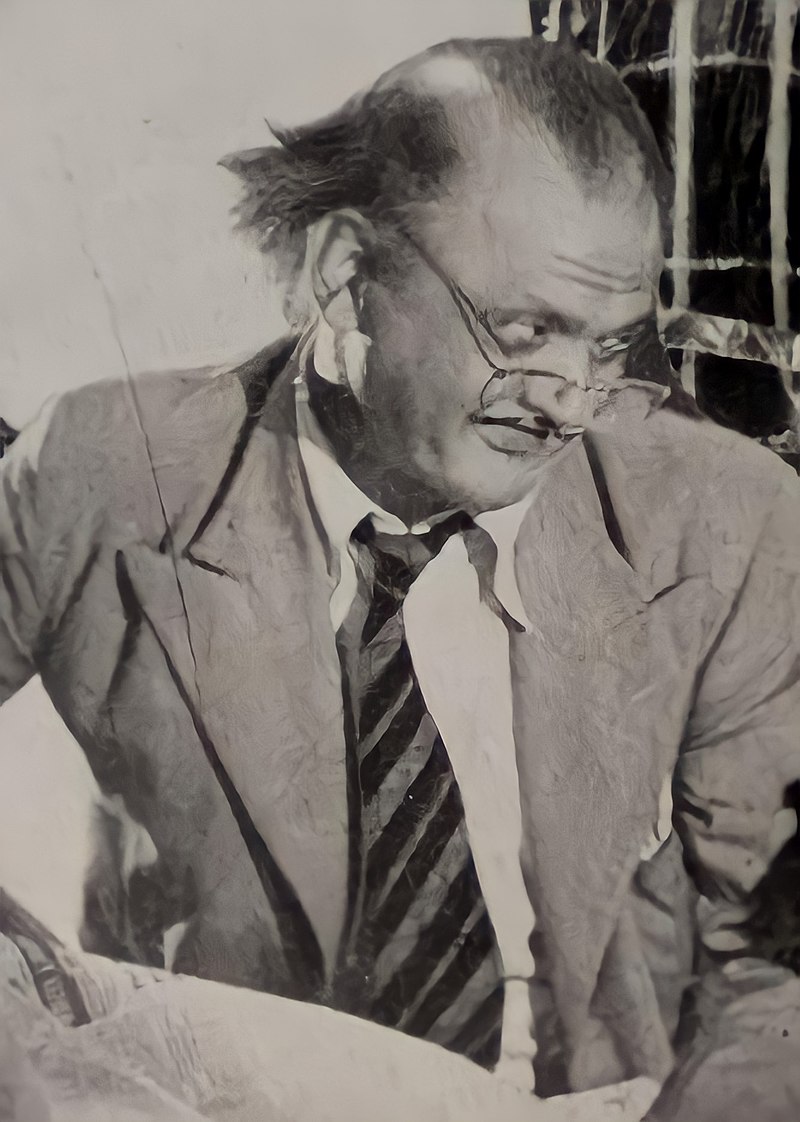 He was called in film industry as Bhudo Advani. There may be two reasons for his nickname ‘Bhudo’. One is that he was called ‘Buddu’, which means one who is too simple; and the other one ‘Buddho’, meaning old, due to his lack of teeth, as he had always a toothless smile on the face.
He was called in film industry as Bhudo Advani. There may be two reasons for his nickname ‘Bhudo’. One is that he was called ‘Buddu’, which means one who is too simple; and the other one ‘Buddho’, meaning old, due to his lack of teeth, as he had always a toothless smile on the face.
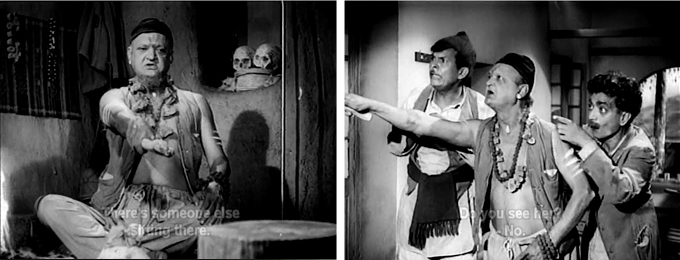 He began as a stage actor in Karachi specializing in female roles during a time when it was not considered proper for Indian women to do so.
He began as a stage actor in Karachi specializing in female roles during a time when it was not considered proper for Indian women to do so.
According to an Indian blogger nicknamed as ‘Memsaab’, one Mr. Ramesh Advani came to live in their building in 1992. He was a good looking, jovial person who soon became friendly with all members. Many years later, he told that he was the son of Bhudo Advani, the Hindi film actor. As a writer on old films, the blogger was keen to know from him about the yesteryear comedian Bhudo Advani.
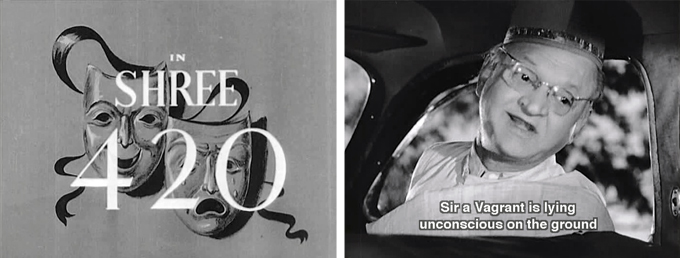 “He graciously agreed to an interview and this is what he told me,” Memsaab writes in her blog ‘Memsaab Story.
“He graciously agreed to an interview and this is what he told me,” Memsaab writes in her blog ‘Memsaab Story.
“Bhudo Advani was doing all sorts of dramas, stage shows etc. from his teens. He specialized in doing female roles. After matriculation, he came to Bombay to seek roles in films. Here he met Mohan Bhavnani, a producer also from Hyderabad, who gave him a break. His first movie with a minor role was Afzal (1933). Finding that he was good at comedy, he henceforth mostly stuck to comic roles,” Ramesh told.
From 1933 to 1940 he did 35 films. Notable among them were Jeevan Lata, Ladies Only, The Mill (Gareeb Pariwar), Navjeevan, Postman (Abhilasha), Vasavdatta etc. He got married in 1939. He had 7 children, 2 sons (one of whom died early) and 5 daughters. In Mumbai, he acquired a big flat on nominal rent at Tardeo in a building on the premises of Central Studios, the biggest studio in Bombay at the time with 6 stages in all. His flat was so big that the reception of one daughter’s wedding for 100 people was thrown in its drawing room!
Director Mehboob used Central Studios for shootings (his studio came up only in 1942). Mehboob was allotted one makeup room for his artists on the same floor where Advani lived. Thus, he became acquainted with many leading actors and actresses.
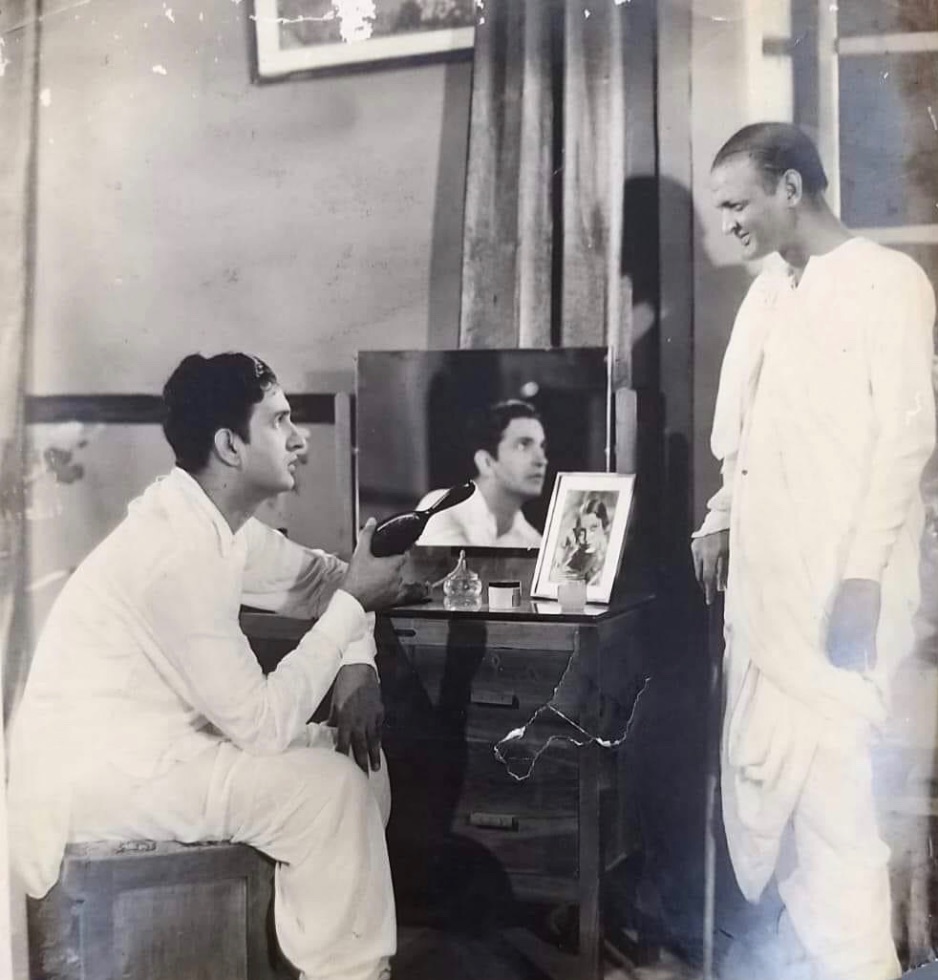 He became Bhudo consequently in film credits and accepted this name stoically. From 1940 to 1950 he acted in another 35 films, including Anmol Ghadi, Anokhi Ada, Meri Kahani, Amaanat, Bisvi Sadi, Dukhiyaari, Ismat, Pooja, Shauhar etc. From 1950 to 1960 he did 20 films including Meena Bazar, Aadmi, Aakhri Dao, Boot Polish, Shri 420, Jagte Raho, Ab Dilli Door Nahin, Madhumati, Madhur Milan, Miss Coca Cola, Qaidi No.911, Aankhen, Bewafa Saudagar etc.
He became Bhudo consequently in film credits and accepted this name stoically. From 1940 to 1950 he acted in another 35 films, including Anmol Ghadi, Anokhi Ada, Meri Kahani, Amaanat, Bisvi Sadi, Dukhiyaari, Ismat, Pooja, Shauhar etc. From 1950 to 1960 he did 20 films including Meena Bazar, Aadmi, Aakhri Dao, Boot Polish, Shri 420, Jagte Raho, Ab Dilli Door Nahin, Madhumati, Madhur Milan, Miss Coca Cola, Qaidi No.911, Aankhen, Bewafa Saudagar etc.
Bhudo Advani was a strict family man and kept his children away, warning them never to enter films. From 1960 onwards his films became fewer as new comedians entered the industry, and his financial condition became delicate. However his only son Ramesh Advani got into Dena Bank and after bank nationalization things improved considerably. All his daughters married well and settled happily. In the 60s he did only 5 films like Anuradha and Khamoshi. His last film was Satyajit Ray’s Shatranj Ke Khiladi (1977).
He left the Tardeo flat and came to Versova in 1978. Now that there were no films, he used to sit in his brother’s Coronation Footwear chain of shops at Grant Road for 6 years.
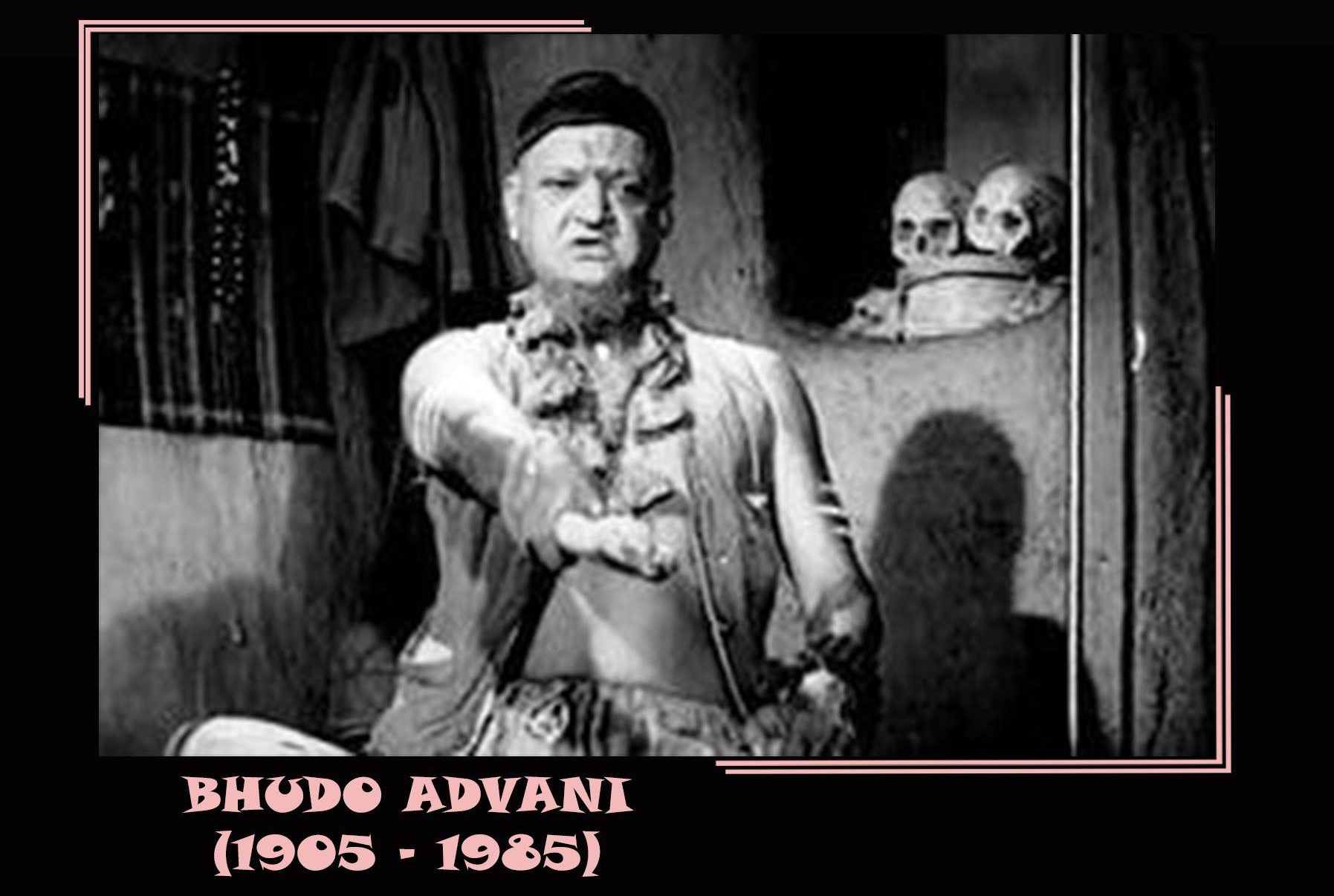 Bhudo Advani died peacefully at the age of 79 years 11 months 8 days on 25 July 1985. Advani was a very simple man and had a few friends, and fellow comedian Mirza Musharraf was among them. In his heyday, Bhudo Advani was in great demand. He averaged 3 films a month during the 1930s and 40s, a very high number; and was very friendly with Motilal, Devendra Goel, Shekhar, and Mukesh, who stayed with him in his early days. Nobody from the film industry attended his funeral. Surprisingly, the news of his death first appeared in Pakistan in the Karachi newspapers and only later in the Times of India.
Bhudo Advani died peacefully at the age of 79 years 11 months 8 days on 25 July 1985. Advani was a very simple man and had a few friends, and fellow comedian Mirza Musharraf was among them. In his heyday, Bhudo Advani was in great demand. He averaged 3 films a month during the 1930s and 40s, a very high number; and was very friendly with Motilal, Devendra Goel, Shekhar, and Mukesh, who stayed with him in his early days. Nobody from the film industry attended his funeral. Surprisingly, the news of his death first appeared in Pakistan in the Karachi newspapers and only later in the Times of India.
In total, he acted in 102 Hindi, 4 Sindhi and 2 Gujarati films. He had a major role in Abana, India’s first Sindhi film. In two of his Sindhi films, his own real-life wife portrayed his movie wife.
The Memsaab writes that in his wonderful book “Eena Meena Deeka: The Story of Hindi Film Comedy” author Sanjit Narwekar has this to say about Bhudo Advani:
Apart from Ranjit, Sagar was the other company in the early talkie era which specialized in comedies. One of the Sagar staples was Bhudo Advani, who endeared himself with the audience because of his toothless smile. Actually he was more of a character actor who found himself saddled with comic dialogues. He made his debut in films in 1933 with Mohan Bhavnani’s Ajanta Cinetone, playing the main comedian in the fantasy Maya Jaal. None of his early films were notable, but he did get noticed by the Sagar bosses who invited him to join the company which was slowly gearing up for comedies.
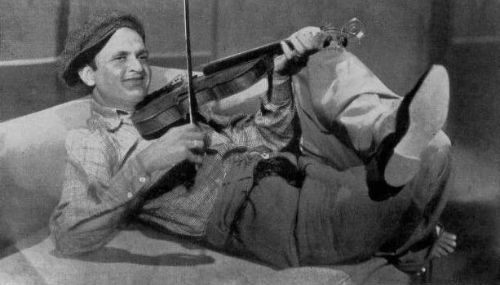 The fact that he was an important addition to the repertoire is borne out by the fact that he starred in almost all their important films from the very start: Badami’s Dr. Madhurika (1935), Mehboob’s Deccan Queen (1936), Luhar’s Do Diwane (1936). He soon became a Mehboob favorite and starred in all his Sagar films: Manmohan (1936), Jagirdar (1937), Hum, Tum Aur Woh (1938). So much so that he followed Mehboob to National Studios, which was formed after Sagar had collapsed. He is credited with having staged the first full length Sindhi play Under Secretary (with S.P. Menghani) in Bombay in the immediate post-Partition period.
The fact that he was an important addition to the repertoire is borne out by the fact that he starred in almost all their important films from the very start: Badami’s Dr. Madhurika (1935), Mehboob’s Deccan Queen (1936), Luhar’s Do Diwane (1936). He soon became a Mehboob favorite and starred in all his Sagar films: Manmohan (1936), Jagirdar (1937), Hum, Tum Aur Woh (1938). So much so that he followed Mehboob to National Studios, which was formed after Sagar had collapsed. He is credited with having staged the first full length Sindhi play Under Secretary (with S.P. Menghani) in Bombay in the immediate post-Partition period.
List of some of Bhudo Advani’s movies
Bhudo Advani’s first screen appearance was in the 1933 film ‘Afzal’. Several films followed in quick succession: ‘Maya Jaal’ (1933), ‘Vasavadatta’ (1934), ‘Sair-e-Paristan’ (1934), ‘Dukhtare Hind’ (1934), ‘Dard-e-Dil’ (1935), the Sarvottam Badami-directed, K.M. Munshi-scripted film ‘Dr. Madhurika’ (1935) and Mehboob Khan’s early films, the action-packed ‘Deccan Queen’ (1936) and ‘Jagirdar’ (1937) and Ramchandra Thakur’s musical hit ‘Gramaphone Singer’ (1938). Under Bhavnani’s direction, he performed in the controversial ‘The Mill/Mazdoor’ (1934).
In the 1940s, he featured in some of the most significant Hindi films including ‘BisviSadi’ (1945), ‘Yateem’ (1945), ‘AnmolGhadi’ (1946), ‘Anokhi Ada’ (1948) and ‘MeriKahani’ (1948). The 1950s saw him in films such as ‘Boot Polish’ (1954) and in one of his most popular appearances as the compulsive gambler in ‘Shree 420’ (1955), before featuring in ‘Ab Dilli Dur Nahin’ (1957) and Bimal Roy’s classic ‘Madhumati’. He also featured in the first Sindhi-language film ‘Abana’ (1958) alongside Sheila Ramani and Sadhana.
_______________________
Source: Memsaabstory, Bollywoodmdb, Chiloka, Facebook page of Film Heritage Foundation , Cinema Hadoo